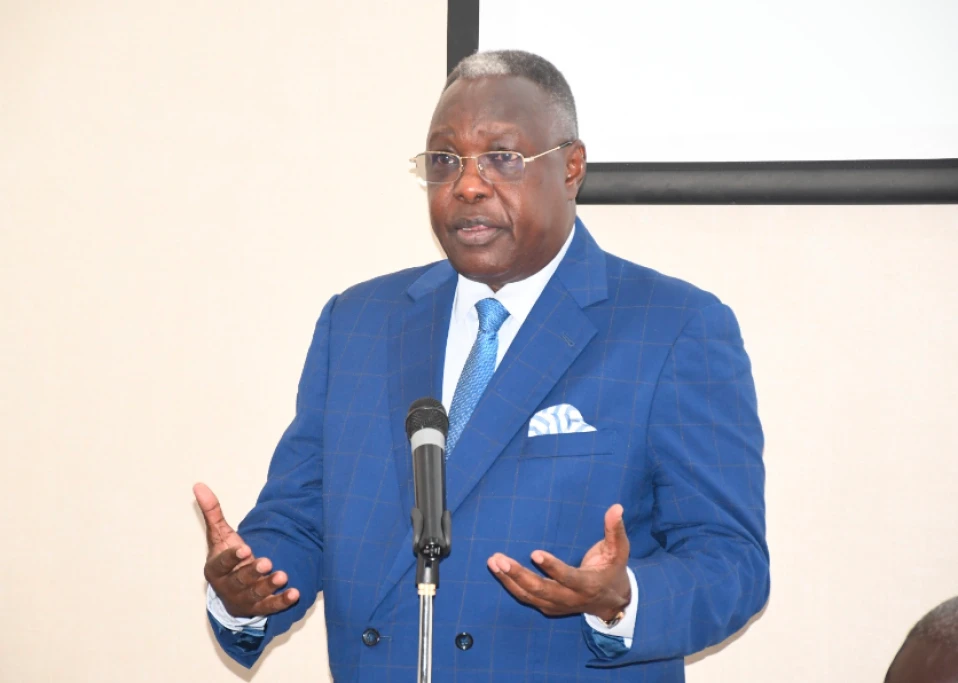
The government of South Sudan has rubbished the human rights violation reports filed by the UN Human rights commission on South Sudan and UNMISS human rights division, saying the reports are driven by regime change agenda.
On 14th – 18th, the UN Human rights commissioners on South Sudan: Andrew Clapham and Barney Afako visited the country.
During their visit, they met with different officials from government, civil society, UN Mission in South Sudan and also visited Malakal where they met with residents and survivors of the five-year conflict.
The rights expert issued the statement on their final day of visit, accusing the government of atrocities and violations committed against the civilians and asked them to end attacking civilians.
The commissioners held a press conference in Juba a day after the UNMISS human right divisions issued their statement on the same matter of human rights violations and killing of civilians.
“The commission is driven by regime change agenda of others who do not want peace and political stability and development in our country,” said Dr. Martin Elia Lomuro, minister of Cabinets Affairs.
“In spite of huge improvement in our human rights record as nascent country emerging from the longest war in Africa, […], they kept us hostage with unfounded allegation and claims to tarnish the image of our country, discourage investors and undermine development in our country.”
Elia said his does not have properly established security sector to protect citizens as the unified army is yet to get guns for deployment after they were graduated with sticks due to the UN arms embargo.
“So we are a building a country from zero and therefore, we expect certain weaknesses in the system and those weaknesses should not be construed to be a government policy to abuse its own citizens after a long period of liberation,” Elia argued.
He said the UN human Rights Commission on South Sudan and UNMISS Human Rights Division have exceeded their mandates and went into communal conflicts, cattle raiding and arms in the hands of civilians, humanitarian situation, rebellion between Kitgwang and Agwelek factions, all of which he claimed do not fall under their mandates.
“…the allegations being drenched on South Sudan…by far exceed the mandates of the commission on typical human rights violations of mandatory constitutional right, gender based sexual violence, arbitrary arrest, extrajudicial killing and political right including the right to exercise politics and civic space,” the minister continued.
“We all know what the standard role of human rights is in term of violations which are constitutional in any country but you can see they have gone out of it to areas that have nothing to do with issues of human rights.”
The ministries of cabinet affairs and justice and constitutional affairs organized a workshop to analyze and response to the reports before the 52nd session of the UN Human Rights Council discuss it on 7 March.
The Minister of Justice and Constitutional Affairs, Ruben Madol, also disagreed with the reports – saying the human rights situation in South Sudan has always been used internationally, regionally, and even within the country’s society as a tool to influence South Sudan’s policy and possibly redirect the destiny of the South Sudanese people because human rights directly affect any country.
The UN Human Right Commission on South Sudan is a body mandated by the UN human rights council to investigate the situation of human rights in South Sudan, and to determine and report the facts and circumstances of human rights violations and abuses, including by clarifying responsibility for violations and abuses that are crimes under national or international law.
Whereas UNMISS Human Rights Division mandates include monitoring, investigating, verifying and reporting on human rights violations and abuses, as well as violations of international humanitarian law, including conflict-related sexual violence.